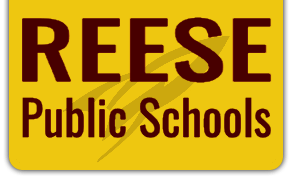SERIES 3000: OPERATIONS, FINANCE, AND PROPERTY
3100 General Operations
3109 Curricular Animals
An animal is not allowed on District property except as provided in this Policy, Policy 3108, with the Superintendent’s or designee’s approval, or as otherwise required by law. Privately-owned dogs accompanied by an owner/handler are permitted on school grounds, but not in school buildings, during school-sponsored events that take place on school grounds. Nothing in this Policy diminishes any rights a person with a disability may have to be accompanied by a service animal or other therapy animal on District property. If an animal’s handler is not a student or employee, the handler must undergo a criminal history check and any other background check required for employees and volunteers by state law or Policy before being allowed to regularly access District facilities as the handler.
A. Use of Animals for Instructional Purposes
An animal that supports a District program or curriculum or that is otherwise used for instructional purposes is allowed on District property with the Superintendent’s or designee’s prior written permission.
It shall be the responsibility of the building’s Principal or their designee to develop a plan of care for those animals housed in District buildings in the event of a school closing (i.e., snow day, breaks). Animal-specific guidelines established by the Centers for Disease Control must be followed at all times.
B. Therapy Dogs
- Definition of Therapy Dog
A “therapy dog,” differs from an “emotional support animal,” “comfort animal,” or “companion animal.”
Therapy dogs are not “service animals” under the Americans with Disabilities Act (ADA) or Board Policy. Therapy dogs are those that have been:
a. individually trained and certified by an approved therapy dog training organization;
b. engaged in animal assisted activities and interactions under the direct supervision of a handler; and
c. managed by a handler who has been individually trained, evaluated, and registered with their therapy dog to provide animal assisted activities and animal-assisted interactions on District property.
A therapy dog must be well-behaved and have a temperament that is suitable for interaction with students and other persons in a public school. A therapy dog is the personal property of its owner, not the District.
2. Standards and Procedures for Therapy Dogs
The following requirements must be satisfied before a therapy dog is allowed on District property:
a. Request. An owner who wants to bring a therapy dog on District property must submit a written request to the Superintendent or designee. The request must be renewed each school year or whenever a different therapy dog will be used.
b. Training and Certification. The owner must submit any training or certification information requested by the Superintendent or designee. Any certification required by the District must remain current at all times.
c. Health and Vaccination. The therapy dog must be clean, well-groomed, in good health, house broken, and immunized against diseases common to such animals. The owner must submit proof of current required licensure from the county or other licensing authority and proof of the therapy dog’s current vaccinations and immunizations from a licensed veterinarian, if applicable.
d. Control. A therapy dog must be under the owner’s or handler’s control at all times.
e. Handler. If the therapy dog’s handler is a District employee, the therapy dog will not interfere with the employee's primary job responsibilities.
f. Ownership. Therapy dogs may be provided by a third party, or independently owned by a District employee. If owned by a District employee, the therapy dog must meet the standards of health described above at the owner’s expense. Required training for accreditation must be at the owner’s expense. The District bears no financial responsibility for the care or feeding of the therapy dog. The District is not responsible for providing any care, supervision, or assistance of the therapy dog.
g. Transportation. Animals, other than service animals, are not to be transported on school buses. It is the responsibility of the therapy dog’s handler to transport the dog to and from school property.
h. Identification. The therapy dog must wear appropriate identification identifying it as a therapy dog.
i.No Disruption. The therapy dog’s behavior must not disrupt the educational process.
j. Health/Safety. The therapy dog must not pose a health or safety risk to any student, employee, or other person.
k. Supervision/Care of Therapy Dogs. The owner or handler is responsible for the supervision and care of a therapy dog, including feeding, exercising, and clean up while the dog is in a District building or on District property. The District is not responsible for providing any supervision, care, or assistance for a therapy dog.
l. Authorized Area(s). The owner or handler will only allow the therapy dog to be in those areas that have been pre-authorized by the Superintendent or designee.
m. Insurance. The owner or handler must submit a copy of an insurance policy that provides liability coverage for any damage or injury caused by the therapy dog while on District property.
3. Exclusion or Removal from School
A therapy dog may be excluded from District property if the Superintendent or designee determines that:
a. the handler does not have control of the dog;
b. the dog is not housebroken;
c. the dog presents a direct and immediate threat to others; or
d. the dog’s presence otherwise disrupts the educational process.
The owner or handler must remove the therapy dog from District property immediately upon such a determination.
4. Allergic Reactions
If any student or employee assigned to a classroom in which a therapy dog is permitted suffers an allergic reaction to the therapy dog, the owner or handler must remove the dog to a different location designated by the Superintendent or designee.
5. Damages to District Property and Injuries
The owner of a therapy dog is solely responsible and liable for any damage to property or injury to persons caused by the therapy animal.
B. Emotional Support Animals
An “emotional support animal” is an animal that has not been individually trained to perform a specific job or task for a person with a disability, but its presence provides comfort or emotional support to others. Emotional support animals are not “service animals” under the ADA or Board Policy.
An emotional support animal is not allowed on District property except as otherwise required by law.
Legal authority: 28 CFR 35.136
Date adopted: 08/09/2021
Date revised: 06/19/2023


